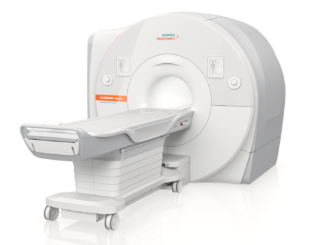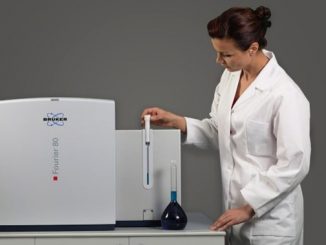Cryogenic Ltd. has developed a new range of products that will eliminate the need for liquid-helium in a number of imaging and spectroscopic techniques.
Laboratory imaging systems and high resolution spectrometers based on Magnetic Resonance rely on strong magnetic fields. The magnetic fields are used to magnetize the atomic nuclei in the tissue or sample and the magnetization generates signals that are manipulated to form images or yield information on chemical structure.
Generating such strong magnetic fields requires superconducting magnets, which must be cooled to close to absolute zero to function. This cooling currently relies on liquid helium, which must be fed periodically into the machine. But liquid helium is in increasingly short supply and becoming expensive, and in many countries can be very difficult to obtain.
Cryogenic has developed methods for cooling magnets without liquid helium and are now offering magnets for Magnetic Resonance Imaging (MRI), Nuclear Magnetic Resonance (NMR) spectroscopy, and Electron Spin Resonance (ESR) spectroscopy.
This will bring numerous benefits to the many laboratories and research institutes employing these techniques.
It will save money as liquid helium is expensive and will become more so as supplies deplete. In some places where liquid helium is very hard to obtain, it could make such techniques viable to use for the first time.
It will also save time and effort. Continuously filling analytic instruments with liquid helium is time-consuming, inconvenient, and often requires a technician trained in cryogenics.
Superconducting magnets can also quench occasionally, when the special wire stops being superconducting and suddenly starts generating lots of heat, and then any liquid helium surrounding the magnet rapidly boils off and must escape from the vessel housing the magnet.
Systems using liquid helium therefore require large areas with suitable ventilation facilities. Cryogenic’s magnets can quench safely in a confined space making them more versatile.
Unlike existing systems, Cryogenic’s cryogen free magnets are cooled to low temperature by mechanical refrigerators which require only electrical power and cooling water. The coolers rely on the compression and expansion of a fixed volume of helium gas supplied under pressure in a closed and self-contained circuit. The helium gas remains contained in the circuit and never condenses into liquid.
“Shortages of helium is a pressing issue for researchers and the medical profession. In recent years major research laboratories have had to temporarily shut down multi-million-pound facilities because of these shortages and the problem will only get worse,” said Jeremy Good, managing director at Cryogenic Ltd. “Providing an alternative which doesn’t rely on a regular supply of helium is essential to addressing this problem. It will save time and money in the short term, and in the long term it may be the only option.”



